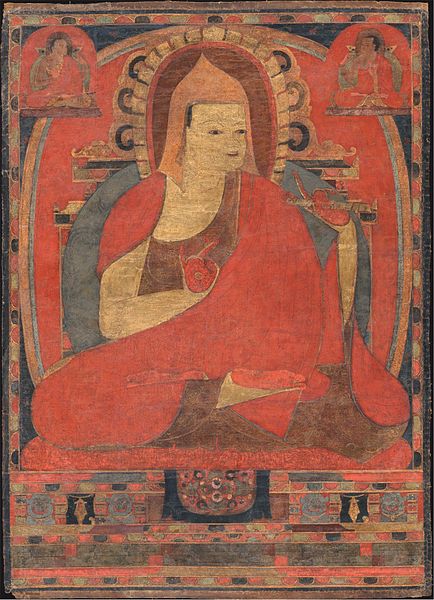 There’s a quote attributed to the teachings of Atiśa Dīpaṃkara Śrījñāna, known generally as Atisa, one of the reformers of Buddhism from around 1000AD. It goes; “The greatest wisdom is seeing through appearances.”
There’s a quote attributed to the teachings of Atiśa Dīpaṃkara Śrījñāna, known generally as Atisa, one of the reformers of Buddhism from around 1000AD. It goes; “The greatest wisdom is seeing through appearances.”
I’ve not heard it said much recently, but one of the qualities that used to be revered in leadership was being a ‘good judge of people’. As it was often inaccurately applied to older males it was probably perceived as politically incorrect.
It sometimes seems that leadership has become focused too much on relatively short-term outcomes. Consequently, a longer sighted recognition that someone might not be as mature, or as experienced, now but already shows great promise for the future, is lost. Being a ‘good judge of people’ means being able to see beyond someone’s current behaviour if it is not ideal. It also means being able to distinguish between genuine potential and the behaviours that ingratiate someone with someone else. Few leaders will really allow the fawning sycophant to have much power – that’s because they have this ability to judge people. A good leader knows that the advantages of surrounding themselves with constructive critics far outweigh the disadvantages of having to deal with their occasional excesses.
It’s a two-way process of learning. The leader has to learn to judge appropriately. The other person needs to learn to manage their behaviour.
Sadly, there are some people who behave as if there’s no difference between constructive and destructive criticism. They may even believe that their behaviour is constructive and find it surprising that others do not. It is their judgement that would benefit from refining. As leaders, we have to be careful not to over-react to them.
There is a concept, that is said to appear in all contemporary Faiths, known as the Golden Rule. It is quite simply that you should; “Do unto others, as you would have them do unto you.” Less commonly referred to, but I believe also appearing in all Faiths, is the idea that one should have respect for one’s elders (and, by extension, one’s ancestors).
When someone does something, or says something, that we find disrespectful, inconsiderate or insensitive, it is not surprising that we often react negatively towards them. Usually, they are somehow contravening our interpretation of this second ‘rule’ – showing a lack of respect for those that have gone before them (in many cases, ourselves).
I find our response to disrespectful behaviour interesting. Some people will react to what they perceive as a threat to themselves and their own psychological balance. Others have more personal emotional resilience and will contain their own feelings until the insults are levelled against other people that they feel protective of. This is a profound tipping point. A few will continue to distance themselves from the perpetrators of the poor behaviour in the hope that their passivity will somehow deflate the attack, even though they can see that others are suffering. The key is knowing, in yourself, where you feel the boundary exists. This is about understanding our values. I’d like to think that I would step in when I felt that the insults had gone beyond me and onto someone else. However, I also have to painfully acknowledge that my practical response to the many violent humanitarian outrages in my own lifetime alone, has been far too slow. Conversely, I am sometimes too quick, and too voluminous, in my response to email critics.
We all benefit from learning the lesson of respect for our elders and ancestors at some stage in our lives. I remember my very first performance appraisal. I was a junior scientist working for Exxon and my section manager, Ron Vickers, gave me a generally positive review, but he noted my frustration at what I felt was a lack of involvement in various projects that I thought I had something to contribute to. It was causing me to be a bit too critical of the leaders of these efforts. He cautioned me; “Always remember that the people you pass on the way up, are the same ones who you’ll pass on the way down.” It’s a simple maxim that perhaps needs reinterpretation in these days of flatter and less authoritarian organisations. Sadly, it took me a long while to appreciate his wisdom.
Learning to deal with authority and authority figures is a vital aspect of all personal development. Sociologists point to this as the root cause of many of the problems of modern society, especially among young males, though a surprising number of the ‘offenders’ now have grey hairs. It seems to me that the issue is less one of enforcing the acceptance of authority – which I fear is a draconian response to the immediate problems caused by inappropriate behaviour – and more one of engendering a greater respect for the lessons learnt by previous generations.
This is not a simple process. There are complexities on all sides and the pathway involves a lot of reflection and self-awareness. It is rarely a one-sided learning – all parties have lessons to learn. However, this is all part of the journey of acquiring gravitas. As you can tell, it isn’t one that I have ‘cracked’, however, it is one that I accompany many of my clients on.
Dr Graham Wilson is an organisational psychotherapist and leadership confidant, who works with people in positions of power, helping them understand psycho-dynamics, politics, and behaviour, as they affect them in their day-to-day work, and navigate through them to achieve far greater things. He also provides very practical support to senior executives as they hunt for more fulfilling roles.



